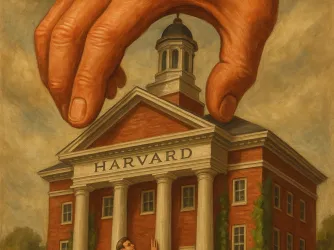Table of Contents
William & Mary Eliminates 'Bias Incident Reporting System'; Trend Remains Popular Nationwide
The Virginia Informer reported yesterday that The College of William & Mary has removed its Bias Incident Reporting System from its website, bringing to a close a controversial chapter in William & Mary's recent history. William & Mary first launched the Bias Incident Reporting System in the fall of 2007. In its initial incarnation, the system allowed students to anonymously report one another for any "hostile behavior that is directed at a member of the William and Mary community because of that person's race, sex (including pregnancy), age, color, disability, national or ethnic origin, political affiliation, religion, sexual orientation, or veteran status."
This new system touched off a firestorm among concerned students and alumni of the college. In October 2007, a group calling itself "Free America's Alma Mater" published an advertisement in William & Mary's student newspaper lambasting the system. "Welcome to the new William & Mary's Bias Reporting System, where W&M now invites you to shred the reputation of your neighbors ... anonymously," the ad read. "Prof gave you a bad grade? Upset at that fraternity brother who broke your heart? Did a colleague vote against you for tenure? Now you can get even!! Anonymously report anything that offends you to the William & Mary Thought Police at https://web.archive.org/web/20100304/http://www.wm.edu/diversity/reportbias/." The group also set up a website where it urged others to help "stop this assault on free speech."
Following the negative publicity, William & Mary made a number of changes to the system to bring it in line with basic free speech and due process rights. Anonymous reporting was discontinued, and the website was updated to explicitly state that "[a]nonymous reports will not be accepted." The definition of bias as including any "hostile behavior" was revised to state, "A bias incident consists of harassment of a member of the William and Mary community, including racial or sexual harassment. The College defines harassment as abusive conduct that is sufficiently severe, persistent, or pervasive to threaten an individual or limit the ability of the individual to work, study, or participate in College activities." These changes made the system far less problematic from a free speech standpoint. Following additional changes to the college's speech codes over the next several years, FIRE officially upgraded William & Mary to its most favorable, "green light" rating in the fall of 2009.
FIRE's pleased to see that the last vestiges of William & Mary's system have been removed. The trend towards maintaining elaborate bias reporting mechanisms continues unabated at other universities, however, with new such systems cropping up all the time. For example, in January 2010, University of California, Los Angeles' (UCLA's) Chancellor announced to the entire UCLA community the launch of the university's new "Report Bias" website, where "bias" is defined as "Any demeaning, derogatory or otherwise offensive behavior directed toward any individual on the basis of race, gender, ethnicity, sexual orientation, religion or other group characteristics." Countless other universities maintain similar reporting mechanisms with equally repressive definitions of "bias"; you can find additional examples in our most recent speech code report or in our Spotlight database of speech codes at more than 400 American colleges and universities.
Even when, as is frequently the case, these bias reporting systems do not independently provide for the punishment of protected expression, they are of serious concern because of the chilling effect they have on campus speech. Investigating students and faculty members for protected expression, even if punishment does not result, is impermissible at a public university or any university that claims to value free speech. As FIRE co-founder Alan Charles Kors wrote many years ago when the University of Alaska investigated one of its professors for a poem she wrote about sexual abuse in Native Alaskan communities, "The investigation, whatever its outcome, is categorically chilling of freedom. ... Individuals in a free society—let alone professors at the universities of a free society—are not investigated for their beliefs and protected expressions. Those beliefs and expressions are inviolable."
Recent Articles
FIRE’s award-winning Newsdesk covers the free speech news you need to stay informed.

FAQ: Responding to common questions about the fight between Harvard and the Trump administration

George Mason University calls cops on student for article criticizing Trump

Trump administration's coercion at Columbia is unlawful and unconstitutional
